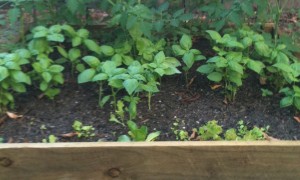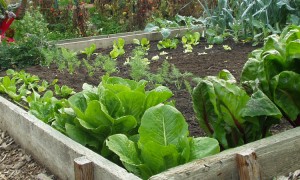Gardening can take on a slightly different hue in your golden years. As a favorite pastime among seniors, gardening can present both special challenges and rewards to older individuals. Working to nurture plants and flowers with your hands can help strengthen your muscles, improve flexibility, ease stress and boost mood. This homegrown activity can even increase your home’s value, with the right tools in hand and appropriate gardening tips for seniors in mind.
Gear Up for Gardening
Just like with other jobs, you can dress for success when it comes to gardening. Wear light, airy, and breathable clothing made out of natural fibers to ensure that you stay as cool as a sprouting cucumber in your garden. Find form-fitting gloves to protect thinning skin from cuts. If you happen to nick yourself while gardening, attend to the wound as soon as you can — washing and disinfecting it can put a stop to bleeding disorders that arise from common age-related diseases such as diabetes. Stay hydrated by keeping a reusable water bottle on hand, and keep a cool towel nearby to press against your face and neck to beat the Dallas heat. These simple gardening tips for seniors can prepare you for your earthy tasks ahead.
Use the Right Tools
Successful gardening can often depend on having the right tools; for seniors, gardening implements that accommodate age and disability can mean the difference between fruitful labor and wilted ambitions. Invest in a raised garden bed for easy access to your greenery. These types of beds can be a boon for wheelchair users or those who have limited motion in their trunks. Select a garden bed that complements your home’s aesthetic and matches its exterior style. Choosing the right garden bed can make this addition look like a natural extension of your home, rather than an afterthought or obvious adaptation. As a result, your home’s value can increase when future home buyers get an eyeful of your green thumb’s accomplishments.
You’ll have it made in the shade, if you add a pergola structure to your garden. In addition to blocking harmful sun rays, pergolas can be flawlessly integrated into your garden’s landscape by showcasing vines or other greenery. Similarly, constructing a shed on your property to house your garden tools can make your home more attractive to buyers. Research your county’s local ordinances to determine its viability within city limits and, once up, maintain it to guard against dilapidation. Sheds that look run down or without purpose can end up decreasing your home’s value on the market.
Map Out Your Garden and Your Future
While gardening can offer a great way to stay active, stay mindful of your limitations. If you have a progressive illness that will impair your mobility or strength in the future, plan ahead by designing a smaller-than-average garden. Consider planting perennial flowers to cultivate in your landscape, as these will blossom back to life next year and don’t require as much work as annuals. Choose to garden plants and flowers native to the region to reduce the amount of extra work you’ll have to do to maintain them. The Blackfoot daisy and Siskiyou Pink gaura flowers, for example, are as hardy as they are gorgeous and can withstand the challenging North Texas climate. Place your garden in an unobtrusive area that can be easily maintained by future buyers, as a large garden may result in buyers’ interests shrinking like violets.
Image Source: Flickr/Jennifer C.
[cf]skyword_tracking_tag[/cf]






